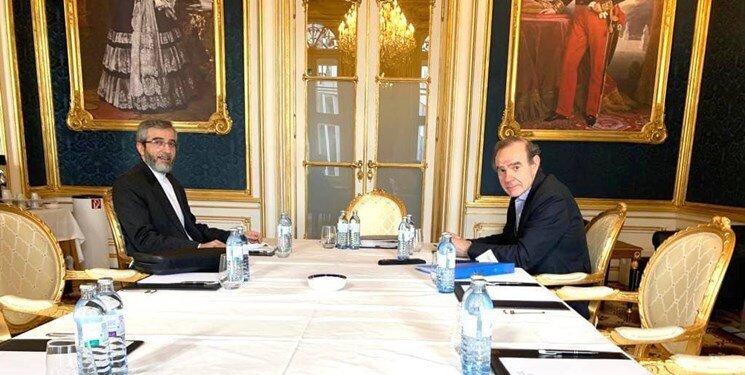Vienna talks enter consequential stage

TEHRAN – As negotiators from Iran and the P4+1 group of countries return to Vienna on Tuesday, talks in the Austrian capital are expected to enter a consequential phase that requires political decisions on the part of the West, especially the United States.
After a weeklong break intended to make consultations in capitals, the heads of the negotiating delegations will be descending on Vienna on Tuesday and are expected to oversee meetings at the expert level.
Iran’s chief negotiator, Ali Bagheri Kani, briefed Iranian lawmakers on the outcome of the talks during the hiatus. During the meeting, Bagheri Kani viewed the talks as “forward-moving” and “positive,” according to lawmakers who attended the briefing.
Iranian Foreign Ministry spokesman Saeed Khatibzadeh echoed the same assessment at his weekly presser on Monday. He said the talks have made significant progress.
The spokesman said, “We had remarkable progress in various spheres including the issue of guarantees on which some ideas have been raised and written.”
According to Khatibzadeh, the framework of a deal has been laid out and its prospect is very clear.
At issue are a number of important points such as the guarantees Iran is demanding the U.S. to provide and verification measures Iran says it needs to undertake in case a deal is reached in Vienna. Iran has said it needs guarantees from the U.S. that it won’t renege on its commitments again after it reenters the 2015 nuclear deal, formally called the Joint Comprehensive Plan of Action (JCPOA).
Iran also seeks to obtain a right to verify the lifting of U.S. sanctions. During the past rounds of talks, significant progress was made on guarantees and verifications, though still, some work remains to be done.
As regards sanctions and nuclear measures, some issues remain unresolved and that’s because there is a need for political decisions. Iranian Foreign Minister Hossein Amir Abdollahian said on Monday that some of Iran’s demands regarding sanctions have not yet been addressed. But he said Iran will continue to work optimistically and in good faith to reach a good and swift agreement.
Also, Ali Shamkhani, Secretary of Iran’s Supreme National Security Council, said Iran has “carefully” set the agenda of Iran’s negotiating team ahead of its return to Vienna.
“The agenda for the Iranian negotiators to continue the eighth round of the Vienna Talks has been carefully defined,” he said on Twitter. The top Iranian security official also hinted that the U.S. needs to make a decision regarding the lifting of sanctions.
“An agreement in which the sanctions that form the maximum pressure are not lifted will condition the country's economy and cannot be the basis of a Good Deal.”
In addition to the sanctions issue, the U.S. also seems intransigent in terms of pursuing a hard line toward Iran’s nuclear achievements and capabilities.
As things stand, the conclusion of the talks depends, to large extent, on the U.S. ability to make political decisions on lifting sanctions and relinquish its unrealistic demands about Iran’s nuclear achievements. Therefore, if the U.S. makes decisions during this hiatus, the talks will most likely come to a swift conclusion over the current round.
Iran’s Foreign Ministry reiterated that in a statement on Monday. It said the Western side faces a test in Vienna. “They can choose a different path with different results. By recognizing the realities of Iran and effectively abandoning the Maximum Failure approach, the U.S. can open up new possibilities. The ball is in their court,” the statement noted.
Leave a Comment